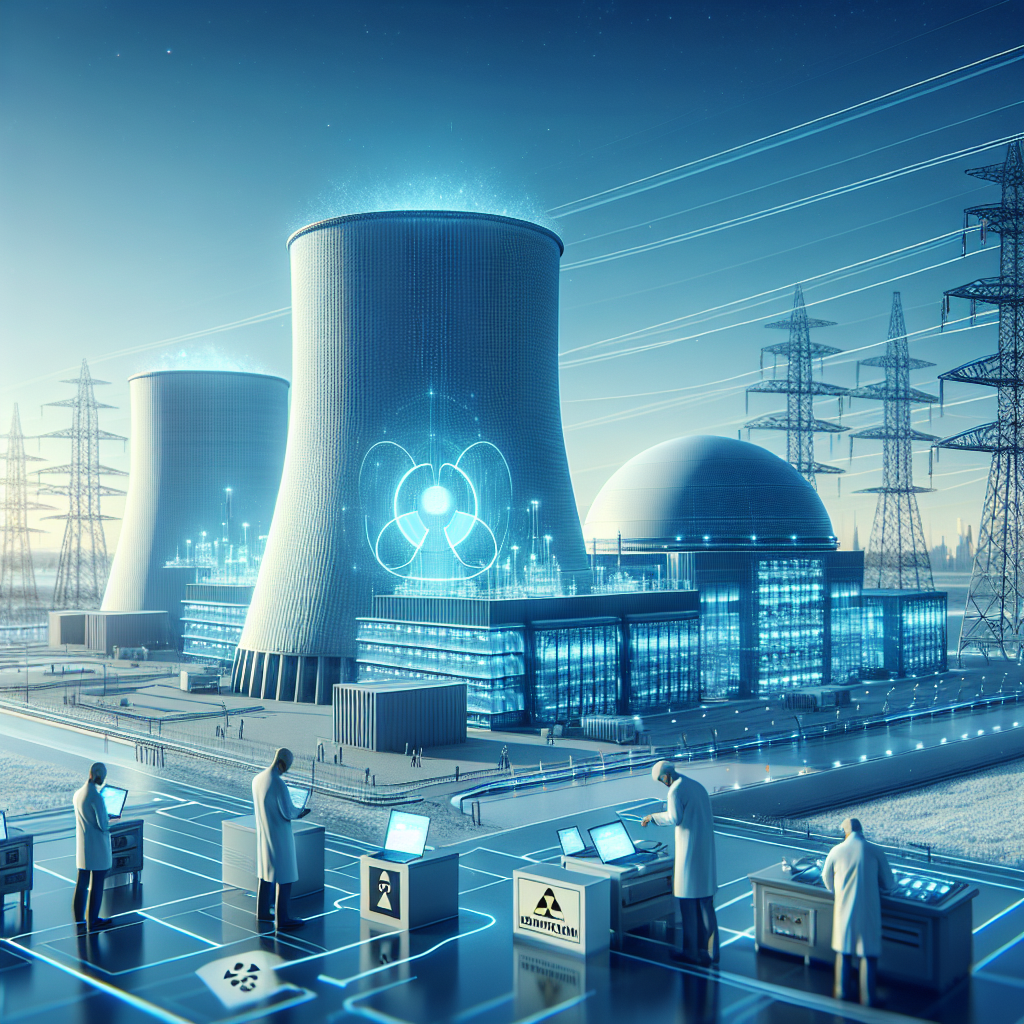IAEA, Russia Expand Nuclear Leadership Training to Empower Global Workforce
The Nuclear Energy Management School, an annual joint initiative of the IAEA and the Russian Federation, provided participants with a comprehensive overview of nuclear energy systems.

Two intensive international training schools jointly organized by the International Atomic Energy Agency (IAEA) and the Russian Federation have concluded in Moscow, marking a major step forward in the IAEA's ongoing global capacity building efforts in nuclear energy. Held at the Rosatom Technical Academy's Moscow branch, the dual schools welcomed 60 professionals from 26 countries for a hands-on learning experience that emphasized both technical leadership and community engagement in nuclear projects.
These programmes are designed not just to teach technology, but to cultivate the next generation of nuclear leaders—professionals who can steer complex projects, build trust with communities, and uphold the highest standards of safety and transparency in an increasingly nuclear-powered future.
A Strategic Need for Skilled Nuclear Leadership
Speaking at the conclusion of the schools, Mikhail Chudakov, IAEA Deputy Director General and Head of the Department of Nuclear Energy, highlighted a central message:
"To develop and run a nuclear programme, we need more than technology – we need people. Skilled professionals are the ones who plan, operate, and engage with communities. This is why capacity building is so important."
As global energy demands rise, climate change accelerates, and nations seek alternatives to fossil fuels, nuclear energy is emerging as a core component of the solution. IAEA projections suggest global nuclear capacity could rise from today's 377 gigawatts (GW) to nearly 1000 GW by 2050 under the high case scenario. But achieving that goal depends on more than building reactors—it requires building trust, leadership, and social responsibility into every phase of development.
Nuclear Energy Management School: From Policy to Practice
The Nuclear Energy Management School, an annual joint initiative of the IAEA and the Russian Federation, provided participants with a comprehensive overview of nuclear energy systems. The curriculum covered the full nuclear project lifecycle, including:
-
Nuclear energy policy and governance
-
Licensing and regulatory frameworks
-
Nuclear safety culture
-
Fuel cycle and waste management
-
IAEA safeguards and security mechanisms
Lectures were delivered by international experts and Rosatom professionals. Participants also took part in group activities and panel discussions aimed at developing their leadership skills in diverse national contexts.
A standout moment of the programme was a technical tour of the Kalininskaya Nuclear Power Plant, an operational four-unit facility launched in the 1980s. Participants observed how safety measures are implemented in a real-time operating environment.
"This was a very valuable experience," said Alexander Agyenim-Boateng of the Ghana Atomic Energy Commission. "It gave us hands-on training with technical tools and the chance to see how safety measures are applied at an operating nuclear facility."
Nuclear Stakeholder Engagement School: Building Public Trust
Alongside technical management, the Nuclear Stakeholder Engagement School focused on the "human factor" of nuclear power development. The curriculum addressed how to build and sustain public trust throughout the lifespan of a nuclear energy project—from planning and construction to operation and decommissioning.
Key topics included:
-
Transparent communication strategies
-
Stakeholder mapping and partnership building
-
Crisis communication
-
Public perception of nuclear energy
-
International best practices for community engagement
Participants visited a nuclear power plant and toured the Atom Pavilion, an interactive museum dedicated to nuclear science and innovation. These field experiences reinforced the role of education and openness in improving nuclear literacy and acceptance.
"This school was an enriching experience that combined high-quality content, generous knowledge sharing and a practical approach to building real skills," said Maria Arcidiacono from Argentina's National Atomic Energy Commission. "It made clear that the future of nuclear energy depends on trust. In Argentina, as in every country, engaging openly with local communities is essential."
Building a Global Network of Nuclear Leaders
The IAEA sees such schools as critical platforms for international cooperation. They allow early- and mid-career professionals to build lasting networks, share challenges and successes, and promote a unified approach to nuclear development anchored in safety, transparency, and sustainability.
In May 2025, the IAEA hosted the first International Conference on Stakeholder Engagement for Nuclear Power Programmes, bringing together civil society, governments, and the nuclear industry to emphasize the importance of inclusive dialogue. These schools are practical extensions of that conference's goals.
"These events underscore our belief that capacity building is as vital as reactor design or grid connectivity," an IAEA spokesperson said. "The success of nuclear energy will depend on how well we engage, educate, and empower people at every level."
Looking Ahead: Expanding Global Reach
The IAEA continues to expand its training footprint worldwide. The next Nuclear Stakeholder Engagement School is scheduled to be held in the United States from 3–7 November, reinforcing the global nature of this initiative and the growing consensus on the need for people-centered approaches to nuclear power.
Through its educational initiatives, the IAEA is not just advancing nuclear energy—it is cultivating a generation of leaders ready to deliver safe, secure, and socially responsible nuclear power to a world in urgent need of clean energy solutions.
ALSO READ
-
IAEA and Ontario Tech Expand Collaboration to Advance Nuclear and AI Security
-
IAEA Team Praises Hungary’s Strong Commitment to Nuclear and Radiation Safety
-
IAEA Launches Global Project to Boost AI Cybersecurity in Nuclear Sector
-
Iran Withdraws from IAEA Cooperation Deal Amid Sanction Tensions
-
UPDATE 1-Repairs begin on Zaporizhzhia power plant lines after ceasefire zones established, IAEA's Grossi says





